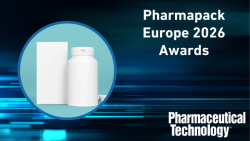
OR WAIT null SECS
- About Us
- Advertise
- Contact Us
- Editorial Info
- Editorial Advisory Board
- Do Not Sell My Personal Information
- Privacy Policy
- Terms and Conditions
© 2026 MJH Life Sciences™ , Pharmaceutical Technology - Pharma News and Development Insights. All rights reserved.
Pharma’s Decade in Brief
As a new decade has begun, this editorial reviews some of the biggest, brightest, and boldest happenings from the industry over the past 10 years.
Editor’s Note: This article was published in Pharmaceutical Technology Europe’s January 2020 print issue.
As the new year begins, it is always useful to take stock of the innovations that have occurred in the pharmaceutical industry during the previous 12 months. And, as this year heralds the start of a new decade, what better time than to take a look at some of the biggest, brightest, and boldest happenings from the industry over the past 10 years.
1. Brexit
Yes, inevitably Brexit needed to be on the list as it is a topic that has dominated headlines across Europe and is still impacting the pharmaceutical landscape. With the United Kingdom set to leave the European Union at the end of January 2020, Brexit will straddle two decades and has the possibility to significantly alter much within pharma, such as regulatory processes and supply chains, across the European region.
2. EMA relocates
Another big event to impact the European pharma industry over the past 10 years is the relocation of the European Medicines Agency (EMA). As a result of the UK’s referendum decision to leave the EU, relocation of EMA from London to Amsterdam, a country located within the EU, was an inescapable consequence. This upheaval has caused many disruptions, not least the dramatic reduction in staff of the agency itself.
3. Approval of cannabis-based medicine
The approval of Epidyolex (cannabidiol), which was granted in September 2019, represents the first within Europe for a plant-derived cannabis-based medicine and as such offers not only a significant milestone for companies working with this class of medicine but also for patients suffering from rare forms of epilepsy. Epidyolex is an oral adjunctive therapy that is approved for use in the treatment of seizures in patients with Lennox Gastaut syndrome or Dravet syndrome.
4. Anti-counterfeiting measures
The EU falsified medicines directive (FMD) was set out and implemented during the course of the decade, meaning companies across Europe are now required to include specific safety features on packaging of all medical products. These European regulations have been set out to ensure that medicines within the region are safe and properly controlled.
5. Nitrosamine impurities risk
Impurities found in sartan blood pressure medications that had been produced within Asia led to regulatory action being taken, such as the requirement on pharma companies to check raw materials and supply chain processes. The ramifications of this quality issue are ongoing, and as is further explained in this month’s European Regulatory Watch, there is the potential that EMA will further tighten up rules around quality of imported APIs.
6. BMS acquisition of Celgene
In 2019, the global pharma industry saw the acquisition of Celgene by Bristol-Myers Squibb (BMS), worth a whopping US$79.4 billion (EUR69.7 billion) (1). This acquisition represented the largest for the industry, in terms of financial value, over the past 10 years.
7. The opioid epidemic
This huge news item first hit headlines back in 1991, but it has, in a secondary and tertiary wave (2010 and 2013, respectively), been impactful for pharma and global human health throughout the past decade. Currently, there is a lot of news concerning the Sackler family in the United States, who are under scrutiny as a result of marketing tactics employed in the promotion of opioids, and in Europe, action is being taken by regulatory authorities and government bodies to try to avoid a crisis like that happening in the US.
8. Martin Shkreli
Although the arrest and subsequent imprisonment of Martin Shkreli (aka Pharma Bro) is a news story essentially from the US, it was closely followed by many in Europe. A former pharmaceutical executive and hedge fund manager, responsible for price gouging a life-saving drug 50-fold, Shkreli was actually arrested in 2015 and eventually imprisoned in 2018 for fraud.
9. First CAR-T cell therapies approved in Europe
In August 2018, the European Commission granted approval to two chimeric antigen receptor T cell (CAR-T) therapies, Novartis’ Kymriah (tisagenlecleucel) and Gilead’s Yescarta (axicabtagene ciloleucel). These innovative personalized therapies offer a paradigm shift in treatment for patients with specific aggressive malignancies, as per the approved indications, and seem to be paving the way for more cell and gene therapy approvals.
10. Rise of biosimilars
Towards the end of the decade, there has been an increasing number of biosimilars launched within Europe. These biological products that have no meaningful differences to the originator product are offering a cost-sustainable option to healthcare systems and patients across the region. Of particular note are biosimilars to Humira (adalimumab), Amgen’s Amgevita and Biogen’s Imraldi, which were launched in October 2018.
References
1. IMAA, “M&A Statistics,” https://imaa-institute.org/mergers-and-acquisitions-statistics/ [accessed 10 Jan. 2019].
Article Details
Pharmaceutical Technology Europe
Vol. 32, No. 1
January 2020
Page: 5
Citation
When referring to this article, please cite it as F. Thomas, “Pharma’s Decade in Brief,” Pharmaceutical Technology Europe 32 (1) 2020.

 Download Issue: Pharmaceutical Technology-01-02-2020
Download Issue: Pharmaceutical Technology-01-02-2020

